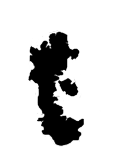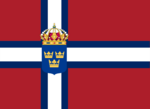Duchy of Dondora
Duchy of Dondora | |
|---|---|
|
Flag | |
 | |
| Capital | Hasbjerg |
| National Language | Danish, English |
| Ethnic groups |
|
| Demonym(s) | Dondorian |
| Government | Duchy |
• King | King Sebastian |
| Population | |
• Census | 420,299 |
| Currency | Dondorian Dollar (DD) |
The Duchy of Dondora is a country situated on the Jutland Peninsula, bordering Germany to the south. The Duchy of Dondora, as it is now known, is a constitutional monarchy with a parliamentary system of government, with a hereditary duke as its head of state. The country's landscape is primarily consist of flat terrain, with some rolling hills in certain areas. Its climate is be temperate, with mild summers and cool winters. The Duchy of Dondora's economy depends mainly on agriculture, particularly dairy farming, and the manufacturing industry. The country's culture is be heavily influenced by its Scandinavian heritage.
History
The Duchy of Dondora was founded in 1745 after declaring independence from the Holy Roman Empire. After declaring independence, the Duchy of Dondora took control of Schleswig-Holstein, and began establishing themselves as a soverign country. The Holy Roman Empire attempted to re-annex them, however it faced more internal conflicts, leaving the Duchy of Dondora to it's own devices. Soon, the Kingdom of Prussia would seek colonial expansion, and would invade the city of Copenhagen and launch an attack on the Dutchy of Dondora in the process. That battle would be known as the Battle of Copenhagen.
The defeat at the Battle of Copenhagen in 1789 served as a stark reminder to the people of the Duchy of Dondora that they needed to be prepared for any potential conflicts that lay ahead. In the years following the defeat, the Dondorian army underwent significant changes, as they focused on modernizing their military tactics and strategies.
New training methods were implemented, and the army began to incorporate the latest military technologies into their operations. The Dondorian navy also underwent significant changes, with new ships and weaponry being introduced to provide greater protection to the coastal regions.
At the same time, the people of Dondora worked tirelessly to rebuild their infrastructure and economy, and the Duchy soon emerged as a thriving hub of commerce and trade. The defeat at the Battle of Copenhagen had served as a wakeup call to the people of Dondora, spurring them on to greater heights of innovation and success.
Today, the Duchy of Dondora stands as a formidable regional power, with a strong economy, a powerful military, and a united populace. The lessons learned from the Battle of Copenhagen have been ingrained into the fabric of Dondorian society, shaping the nation's military and political strategies for generations to come.
While the scars of the past still linger, the people of Dondora are proud of their history and are committed to defending their land and their way of life. As the 18th century draws to a close, the Duchy of Dondora stands as a beacon of strength and resilience, a testament to the indomitable spirit of its people.
